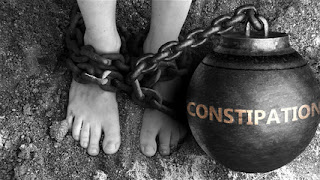Understanding HORMONES
There is so much confusion about hormones and their uncomfortable symptoms when imbalances
occur. What makes things even more confusing as the cause of the uncomfortable symptoms such
as hot flashes is different depending on where you are in the complex menopausal timeline.
Menopause is official when there has been no period for one calendar year. For those who have
had ablations, have IUDs or maybe had a hysterectomy with ovaries remaining, blood work would
help to diagnose menopause as these women are no longer menstruating but not necessarily
menopausal.
The five to ten years before menopause can go well or can be an uncomfortable ride that makes you
dread what comes next. The most common symptoms of the peri-menopausal woman is anxiety,
sleep disruption (specifically waking up between 1-3am) and hot flashes or night sweats. The
anxiety and sleep issues lead many to ask their providers for help only to land themselves on anxiety
or sleep medications that will not actually fix the problem and may very well cause dependency.
Low progesterone in relation to the other hormones is the cause of these uncomfortable symptoms.
Once progesterone levels are addressed, sleep improves and anxiety diminishes. There are many
over the counter creams that could be used but quality is a concern. Compounding pharmacies can
blend a dose that is accurate to patient need. Common doses range from 12.5mg - 25mg per day for
creams and 100mg to 200mg for oral dosing (Prometrium). It is my experience that although sleep is
immediately improved with oral progesterone, it does not improve low levels or “stick” so to say. The
low dose cream does a much better job even though it takes at least 2 to 3 months before levels
normalize. For this reason, I sometimes give my patients both so that they can experience a better
nights sleep and less anxiety almost immediately. Within a few months they no longer need the oral
progesterone. Progesterone is NOT the same as Progestin (birth control) and actually shuts off the
body’s ability to make or maintain progesterone levels.
It is very rare if ever a peri menopausal women needs estrogen. It is estrogen dominance that causes
the uncomfortable symptoms at this time.
Conversely, menopausal women will experience the same hot flashes and other symptoms but now
it may be due to a low or dropping estrogen levels. This is what can be so confusing. Low progesterone
is no longer the cause of uncomfortable symptoms but now we need to look at estrogen levels as well.
Low estrogen levels affect memory, libido, energy and skin. Vaginal dryness is a common complaint.
Estrogen in women is comparable to testosterone in men. It is our mojo. It is what makes women such
great multi-taskers. Estrogen should never be taken orally after menopause and cream is a
recommended delivery option.
I prefer saliva testing as it compares the hormone levels in relationship to each other. For example,
a patient can have a low progesterone level, but if all hormones are also in low range, she may feel
perfectly fine as levels are balanced. Many symptoms of hormone imbalance happen when hormones
are in range. For example, someone who has a low normal progesterone with a high normal estrogen,
testosterone and DHEA, could be suffering from anxiety, weight gain and insomnia. Until you can see
what hormone levels are in relation to each other, you can only be guessing.
Old school thinking suggests if you no longer need or have your uterus, progesterone is not needed.
This could not be further from the truth and I feel it is a progesterone deficiency that holds the door wide
open for breast cancer to enter. Progesterone brings balance and protection.
After helping women with hormonal issues for over 15 years, I have come to the following
conclusions:
*Most women who experience a low libido are not testosterone deficient.*When DHEA and Testosterone levels are high, insulin resistance is suspected
*Vitamin D3 helps connect the dots in hormone balance (modulator)
*Sleep disruption is commonly associated with a low progesterone
*Anxiety is a common symptom of progesterone deficiency
*Estrogen (estradiol and estriol) protects memory in menopausal women
*Progesterone deficiency is a common finding in women struggling with fertility
*Blood work does not reflect progesterone levels well.
*Pregnenolone has helped with women suffering from depression
*DHEA is the “vitality” hormone that converts to estradiol and testosterone. Doses for women
should not exceed 10mg per day.
I hope this helps clarify some of the confusion. I work with highly educated and talented physicians, but when it comes to bio-identical hormone balancing and guidance, this just was not taught in medical school. Here's to BALANCE in your life!



Comments
Post a Comment